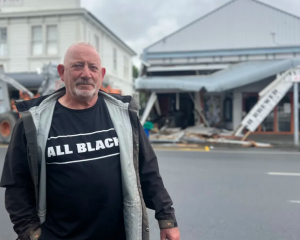
The size and complexity of the project, which involved designing and building an automated end-to-end material handling solution for one of Canada’s largest beef processing facilities, was enough to put the company on the map in the North American market, chief executive John Kippenberger said yesterday.
Scott Technology would integrate existing technology from across the group, with systems from its joint venture partner French-founded Savoye, to deliver its first fully automated warehousing system for JBS Canada’s Brooks plant in Alberta.
Capable of handling 85,000 cartons, it would replace a fully manual system at the facility which employs more than 2800 people.
Describing it as a high-scale, high-speed, high-tech system, Mr Kippenberger said the contract was a big deal, not only for a New Zealand company, but for companies in general.
"A $56 million deal is a substantial contract in most people’s books. I’m excited now its announced to get on and do the work," he said.
He acknowledged he felt "a little bit of relief" in the aftermath of the announcement, saying it had been a group effort — involving a lot of resources and energy — to close the deal in a very competitive market.
Now there was a sense of excitement about pulling resources together and delivering a successful project.
The project would be supplied from Scott’s facilities in Europe, the company’s centres of excellence for materials handling technology. Scott’s automated-guided-vehicles (AGV) components would be supplied out of Scott USA.
It would mean more staff in parts of Scott’s European business and also on the ground in North America, building both of those teams from a very good base, he said.
Mr Kippenberger said the deal showed large investment was going into automation projects globally. While Covid-19 and supply chain issues had caused disruption, it was an environment which still had a very rich and deep appetite for automation.
Like New Zealand, North America continued to experience labour supply issues, particularly in the meat processing space, but also with other food companies.
The new system would not only address that challenge but it would also improve safety as one carton could weigh up to 50kg, reduce storage costs, errors and deliver improved inventory turns.
It represented significant efficiencies and cost savings for JBS Canada. Potentially there were other opportunities for Scott Technology across the JBS group which is the second-largest food company in the world.
As part of its Scott 2025 strategy, the company committed to expanding its proven materials handling business outside of its European stronghold and into the North American market, with a particular focus on frozen foods and meat processing.
The deal was the first real beach-head project in that market, Mr Kippenberger said.
It was expected to take more than 18 months to design and build and the teams were well versed at working under supply chain disruptions.












